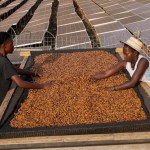(MOMBASA) – A cargo management dispute at Kenya’s Port of Mombasa has left South Sudanese goods stranded at container freight stations, causing delays in delivery, increased costs for traders and potential disruptions to supply chains across South Sudan.
The backlog is the result of unresolved issues over cargo tagging requirements on the Northern Corridor, the main transport route connecting Mombasa to landlocked South Sudan. Importers nominated cargo handling firms that lack formal agreements with Panda Freight and Logistics, the sole company authorised by the government of South Sudan to provide special electronic tagging seals.
Without these seals, cargo cannot legally transit the corridor. As a result, containers remain stuck in Mombasa, with business leaders warning of serious economic implications if the matter is not urgently resolved.
The South Sudan Freight Forwarders Association and South Sudan Business Community have urged the Ministry of Transport in Juba to restore a previously issued directive that designated two approved container freight stations — CFS Autoport and Compact Freight Systems — to handle all South Sudan-bound cargo. According to traders, this earlier arrangement allowed for better monitoring, security, and more efficient clearance.
However, a recent ruling by the Kenyan High Court has further complicated matters. On 19 July 2025, the court issued an order barring Autoport from handling South Sudan cargo. Justice Christopher Ndolo Mutuku ruled that the company, which has links to the family of Kenyan Cabinet Secretary Hassan Joho, failed to properly deliver its services.
The ruling disrupted the previous cargo flow system and left the authorised tagging company without working arrangements with other freight handlers. Consequently, cargo is now spread across 22 freight terminals in Mombasa — most of which do not meet South Sudan’s transit requirements.
Emmanuel Kachoul, chairman of the South Sudan Freight Forwarders Association, said the situation has created a bottleneck, with goods unable to leave Mombasa for South Sudan. In a letter to South Sudan’s Ministers of Transport, Finance, and Trade — Dr Lam Akol, Dr Marial Dongrin, and Atong Kuol Manyang — Mr Kachoul warned of the mounting cost to businesses.
“Our members are facing severe delays and rising fees due to this dispute,” he wrote. “We respectfully request the Ministry of Transport to reconsider and reaffirm the earlier directive… Our nation’s security concerns are easily checked and ensured from this point.”
Economic Impact on South Sudanese Markets
The cost of the delays is already affecting businesses in South Sudan. With containers stuck in Mombasa, goods including food, machinery, construction materials, consumer electronics, and pharmaceuticals cannot reach their destination. The longer the containers remain at the port, the higher the storage and demurrage charges — costs that will inevitably be passed on to South Sudanese consumers.
For many South Sudanese traders, especially small and medium-sized enterprises that rely on regular shipments from Mombasa, these costs are unsustainable.
Furthermore, the delays could lead to inflationary pressure in the local market, particularly on imported essential goods. If unresolved, traders warn that the backlog may result in price hikes in Juba.
Supply Chain and Logistics Challenges
The freight dispute has also exposed the vulnerability of South Sudan’s external trade infrastructure. As a landlocked country, South Sudan relies almost entirely on the Port of Mombasa for imports and exports. Disruptions at the port can have ripple effects across the entire economy — from wholesale and retail sectors to construction and industrial supply chains.
Transporters and logistics providers are also reporting losses as trucks are forced to wait at the Kenyan port for clearance that may take days or even weeks.
A logistics expert working with South Sudan-based firms noted that unless the South Sudan government establishes clear and enforceable freight arrangements, similar disruptions will continue to damage confidence among importers and foreign partners.
“There must be a more predictable and transparent cargo handling system for South Sudan,” the expert said. “Otherwise, traders will continue to lose money and time — both of which affect economic recovery and stability.”
Calls for Policy Review and Reform
The current cargo impasse has reignited debate about South Sudan’s trade policy and how the government engages with Kenyan authorities and regional logistics stakeholders.
The business community is pushing for the government to negotiate new terms that ensure continuity and security of supply chains while addressing concerns about monopolies and inefficiencies.
“We are not asking for special treatment,” Mr Kachoul said. “We are asking for a functional and reliable system that protects the interests of South Sudanese traders and ensures our economy does not suffer from external logistical problems.”
For South Sudan’s fragile economy, which is already under strain from inflation, currency depreciation and high import dependency, resolving the Mombasa cargo crisis is an urgent economic priority.
Jakony.com® – South Sudan’s Leading Business News Portal
For updates, insights, and expert analysis on regional markets and trade impacting South Sudan, follow Jakony.com


















































